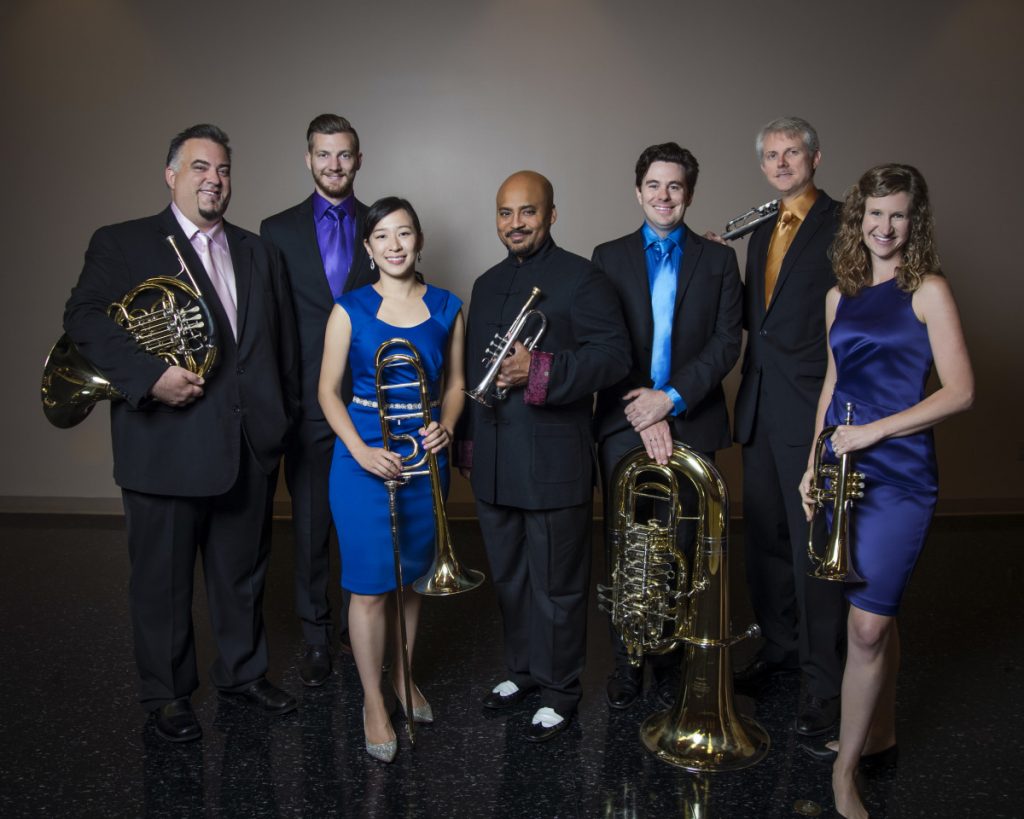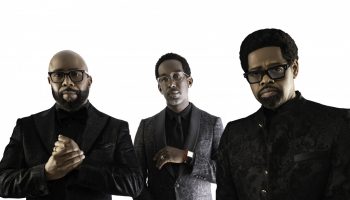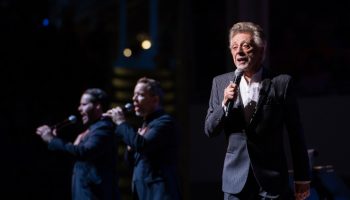
Arden Ryan
Contributing writer
The streets of New Orleans, rich in musical tradition and heritage, were formative spots for Rodney Marsalis and the beginnings of his original brass band. The mixture of styles he was exposed to early on, and the city where he started his musical journey, continue to inform his music making and inspire the brass that Chautauquans will hear this evening.
“Growing up in New Orleans, you’re surrounded by influences from a lot of different cultures,” Marsalis said, “not seeing big borders between styles of music.”
Taking its bold yet graceful sound to the stage at 8:15 p.m. tonight in the Amphitheater is the Rodney Marsalis Philadelphia Big Brass, the continuation of the group Marsalis founded in Jackson Square 35 years ago. The band plays a repertoire echoing the diverse music Marsalis grew up listening to, flowing through styles with dexterity.
That blend will weave its way into the band’s selections tonight. Beginning with New Orleans jazz and moving into Baroque classical, the ensemble incorporates everything from Broadway hits by Leonard Bernstein to patriotic marches by John Philip Sousa — a wealth of styles wrapped up in one concert.
Marsalis said he marvels that the band can be playing Bach in one moment and Earth, Wind & Fire in the next, all with a positive audience response. In the end, all music aims for the same goal, he said, to “inspire you, or to move you to feel a certain way.”
Playing music is “something that we can all do as human beings, a very international language,” Marsalis said. “I first experienced that in New Orleans, and now when I travel, it’s what I try to share with the rest of the world.”
For Marsalis, the step toward becoming a musician was a natural one. He ended up playing the trumpet by virtue of his uncle, Ellis Marsalis, famed jazz pianist, music educator and patriarch of the musical Marsalis family.
When it came time for him to choose an instrument at age six, his mother reached out to Ellis, who advised him to play the trumpet for its high stylistic versatility. Marsalis took that advice and has played trumpet ever since.
Marsalis studied under his cousin Wynton Marsalis from age 11, who continues to be “a big source of inspiration” for him. Marsalis describes his cousin Wynton as the first serious trumpet teacher he had, the first to show him the hard work and perseverance it would take to achieve mastery on the instrument.
Marsalis said he feels fortunate to have built a “solid foundation” studying under his cousin, who “didn’t water it down.”
Leading his band beside the St. Louis Cathedral in the heart of the French Quarter, Marsalis came to know the importance of a collaborative culture in music. Naturally, the band couldn’t play forever — a 45-minute set was typical. As soon as his group came to a stop, he would signal across the plaza to another cooperating band, which would start right away so as not to lose the crowd. Marsalis’ band played a mixture of classical and marches, while its counterpart played traditional New Orleans music.
“We just would do that all afternoon. Everyone made money and people heard this huge variety of music,” Marsalis said. “(Music is) how we come together without the burden of race and religion and gender. It’s the one place where we can all connect as human beings.”
Marsalis said his band is thrilled to be returning to Chautauqua, a place he describes as able to foster musical connection between people, and where the group’s long pandemic isolation came to an end.
“We hadn’t performed together in 18 months, and the very first time I got to play again musically with my colleagues was when we rehearsed at Chautauqua. It’s a very special place for us,” Marsalis said. “Emerging from the pandemic and being able to collaborate again feels almost like a renaissance of the arts. It’s really wonderful to be a part of it.”
A major tenet of Marsalis’ work is to thoroughly incorporate diversity into the brass ensemble, which he said is not a hard task.
With “so many qualified and amazing musicians of all different walks of life… I reach out to people and see who’s available, and the band just always looks like a cross section of America,” he said. “To me, that’s natural.”




